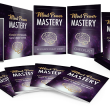Planning a successful concert requires meticulous preparation and effective concert event management. From selecting the right venue to marketing the event, every detail counts in creating a memorable experience for both the audience and the performers. This comprehensive guide will walk you through the essential steps to ensure your concert is a resounding success.
1. Define Your Objectives
Before diving into the logistics, it’s crucial to define the objectives of your concert. Ask yourself:
a. What Is the Purpose of the Concert?
Is it a promotional event for a new album, a fundraising concert, or a celebration of a special occasion? Understanding the purpose will shape your planning process.
b. Who Is Your Target Audience?
Identify who you want to attract to the concert. Consider age, musical preferences, and demographics. Knowing your audience will help tailor your marketing efforts and overall concert experience.
2. Budgeting for the Concert
Creating a detailed budget is a cornerstone of effective concert event management. Outline all potential expenses and income sources.
a. Estimate Costs
Include costs such as:
- Venue rental
- Artist fees
- Equipment and technical setup
- Marketing and promotions
- Staffing and security
- Insurance and permits
b. Project Revenue
Consider potential revenue from ticket sales, merchandise, sponsorships, and concessions. This will help you gauge the financial feasibility of the event.
3. Selecting the Venue
Choosing the right venue is crucial for the success of your concert. Here are some factors to consider:
a. Capacity
Ensure the venue can comfortably accommodate your expected audience size. Too small, and it may feel cramped; too large, and it may seem empty.
b. Location
Select a location that is easily accessible for your target audience. Consider parking availability, public transportation options, and nearby amenities.
c. Acoustics and Technical Setup
Evaluate the venue’s acoustics and technical capabilities. Ensure it can support the sound equipment and lighting you plan to use.
d. Amenities
Consider additional amenities such as restrooms, concessions, and VIP areas. These can enhance the overall attendee experience.
4. Booking Artists and Talent
Securing the right performers is crucial for attracting an audience. Here’s how to go about it:
a. Research Potential Artists
Identify artists or bands that resonate with your target audience. Consider their popularity, performance style, and availability.
b. Negotiate Contracts
Once you’ve selected your artists, negotiate contracts that outline payment, performance times, and technical requirements. Ensure all parties are clear on expectations.
c. Plan for Rehearsals
Schedule rehearsals to ensure the artists are comfortable with the venue and sound setup. This will help minimize technical issues during the concert.
5. Marketing and Promotion
Effective marketing is essential for drawing an audience to your concert. Here are some strategies to consider:
a. Create a Marketing Plan
Develop a comprehensive marketing plan that outlines your promotional strategies. This should include social media, email marketing, and traditional advertising methods.
b. Utilize Social Media
Leverage platforms like Facebook, Instagram, and Twitter to create buzz around your event. Share behind-the-scenes content, artist interviews, and countdown posts to engage potential attendees.
c. Collaborate with Influencers
Partner with local influencers or music bloggers to promote your concert. Their reach can help attract a larger audience and build credibility.
d. Offer Early Bird Tickets
Encourage early ticket sales by offering discounted rates for early purchasers. This can help you gauge interest and secure initial revenue.
6. Logistics and Operations
Effective concert event management involves meticulous attention to logistics. Here are key components to consider:
a. Technical Setup
Coordinate all technical aspects, including sound, lighting, and video equipment. Ensure that everything is tested and functioning properly before the concert.
b. Staffing
Hire and train staff for various roles, including security, ticketing, and concessions. Ensure they understand their responsibilities and are prepared for any issues that may arise.
c. Event Schedule
Create a detailed schedule that outlines the timing of performances, sound checks, and breaks. Share this schedule with all staff and artists to ensure everyone is on the same page.
7. Enhancing the Attendee Experience
The overall experience of your attendees can make or break your concert. Here are some ways to enhance it:
a. Create a Welcoming Atmosphere
Set up signage, decorations, and lighting that align with the concert’s theme. A visually appealing environment can create a memorable experience.
b. Offer Merchandise
Provide opportunities for attendees to purchase merchandise, such as artist memorabilia, clothing, or exclusive items. This can serve as an additional revenue stream.
c. Engage with the Audience
Encourage audience interaction through social media, live polls, or contests. Engaging your audience enhances their experience and fosters a sense of community.
8. Post-Concert Analysis
After the concert, take time to evaluate its success. This is a crucial step in concert event management.
a. Gather Feedback
Solicit feedback from attendees, staff, and artists. This can be done through surveys or informal conversations. Understanding their experiences will help you identify areas for improvement.
b. Analyze Financial Performance
Review your budget and financial performance. Compare projected income and expenses with actual figures to assess profitability.
c. Document Lessons Learned
Take detailed notes on what worked well and what didn’t. This documentation will be invaluable for planning future events.
Conclusion
Planning a successful concert requires careful attention to detail and effective concert event management. By defining clear objectives, budgeting wisely, selecting the right venue, booking the right talent, and executing a solid marketing plan, you can create a memorable experience for your audience. Remember to gather feedback and analyze the event afterward to continuously improve your planning process. With the right approach, your concert can be not only successful but also a stepping stone for future endeavors.












